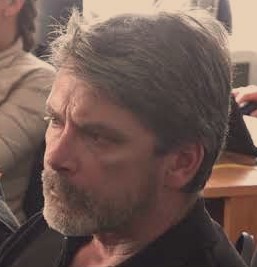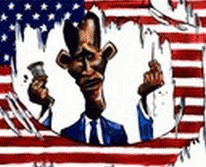President Obama's Executive Order dated March 6, 2014 is very clear. Any person or organization that threatens the territorial integrity of Ukraine, or questions the legitimacy of the governing junta in Kiev, constitutes a threat to U.S. national security and foreign policy and will be placed under sanctions.
The UN also came to a similarly clear position. It passed a resolution that "affirms commitment to the sovereignty, political independence, unity and territorial integrity of Ukraine within its internationally recognized borders."
Where this becomes a problem is that, according to a statement from UN Secretary General Ban ki-Moon, Ukraine is missing borders.
Experts operating under the aegis of the UN Security Council came to the following conclusion about Ukraine's borders: Within the framework of international law , it turns out that, since the collapse of the Soviet Union, Ukraine has not been properly registered as a state, according to the UN demarcation of its borders. According to the accepted contractual framework of the Russian Commonwealth, or Commonwealth of Independent States (CIS), the country remains on the limits of the administrative boundaries of the USSR, over which the UN has no legal jurisdiction. The EU currently backs this position. The only established borders are on the European side.
Is the U.S. going to sanction Ban ki-Moon? Will they drone the UN?
When the USSR broke up and Ukraine was preparing to declare its independence, Russia set the terms for that independence based on Ukraine's membership within the CIS Treaty:
"On the whole, Yeltsin has been quite careful to avoid making statements which could evoke negative reaction in Kiev, but it is quite obvious that he has not welcomed Ukraine's independence. Yeltsin has been quoted as saying that, "Russia reserves the right to review the borders with those republics that declared themselves independent." [See " Crimea and the Black Sea Fleet in Russian-Ukrainian Relations Discussion," Paper 95-11, Center for Science and International Affairs, John F. Kennedy School of Government, Harvard University . Also, Roman Solchanyk, "Ukraine: A Year of Transition," RFE-RL Research Report, Vol. 1, No. 7 (February 14, 1992), p. 3.]
At the time, Russia's treaty rights to review the borders of Ukraine applied to areas that were largely populated by ethnic Russians, including Crimea, Donbass, and northern Kazakhstan. In addition, Russia claimed the right to protect its diaspora population no matter where they were located in the world. [See Roman Solchanyk, "Crimea: Between Ukraine and Russia," in Maria Drohobycky, ed., Crimea: Dynamics, Challenges, and Prospects (Lanham, Maryland: Rowman & Littlefield Publishers, Inc., 1995), pp. 6-7.]
The CIS Treaty language reads as follows: "The high contracting parties recognize and respect one another's territorial integrity and the inviolability of existing borders within the commonwealth." This made Russia's recognition of Ukraine's borders conditional upon Ukraine's full membership in the CIS . Promulgated in 1991, it was the best guarantee of independence that Ukraine has received from Russia.Understanding Borders
The process of establishing international borders starts with the treaties that bind the countries involved to their mutual recognition. In the case of Ukraine and Russia, those treaties include the original CIS Treaty and the Friendship Treaty.
Creation of the borders begins with the surveying and mathematical work needed to establish approximate locations. The next step is demarcation, which determines the locations of border markers and crossings. To be recognized internationally, the borders need to be registered and demarcated at the UN in accordance with internationally accepted standards and procedures. Lastly, the borders must be delineated--specified in the way you would see them on a map.
Inherent
Problems
With respect to Ukraine's borders, Wikipedia puts it this way: "Ukraine borders with seven countries: Poland , Slovakia, Hungary, Romania, Moldova, Russia , and Belarus. The total stretch of the Ukrainian border consists of 6,992.98 km (4,345.24 mi). In reality Ukraine does not have real established and ratified borders with Russia, Belarus, and Moldova (republics of the former Soviet Union ). The borders with other countries were "inherited" from the Soviet border patrol service, which was recreated [as the Ukrainian border patrol service] after the fall of the Soviet Union."
The ambiguity inherent in Ukraine's borders can be illustrated by its border agreement with Belarus, signed on May 13, 1997.The CIA factbook further notes that "the dispute over the boundary between Russia and Ukraine through the Kerch Strait and Sea of Azov remains unresolved, despite a December 2003 framework agreement and ongoing expert-level discussions."
(Note: You can view every article as one long page if you sign up as an Advocate Member, or higher).






